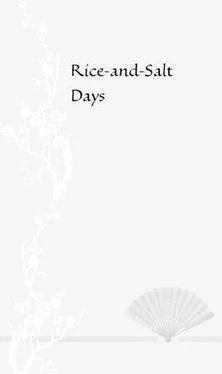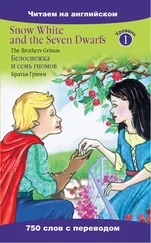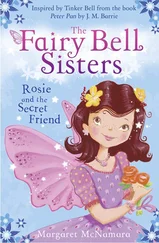Lisa See - Snow Flower And The Secret Fan
Здесь есть возможность читать онлайн «Lisa See - Snow Flower And The Secret Fan» весь текст электронной книги совершенно бесплатно (целиком полную версию без сокращений). В некоторых случаях можно слушать аудио, скачать через торрент в формате fb2 и присутствует краткое содержание. Жанр: Старинная литература, на английском языке. Описание произведения, (предисловие) а так же отзывы посетителей доступны на портале библиотеки ЛибКат.
- Название:Snow Flower And The Secret Fan
- Автор:
- Жанр:
- Год:неизвестен
- ISBN:нет данных
- Рейтинг книги:3 / 5. Голосов: 1
-
Избранное:Добавить в избранное
- Отзывы:
-
Ваша оценка:
- 60
- 1
- 2
- 3
- 4
- 5
Snow Flower And The Secret Fan: краткое содержание, описание и аннотация
Предлагаем к чтению аннотацию, описание, краткое содержание или предисловие (зависит от того, что написал сам автор книги «Snow Flower And The Secret Fan»). Если вы не нашли необходимую информацию о книге — напишите в комментариях, мы постараемся отыскать её.
Snow Flower And The Secret Fan — читать онлайн бесплатно полную книгу (весь текст) целиком
Ниже представлен текст книги, разбитый по страницам. Система сохранения места последней прочитанной страницы, позволяет с удобством читать онлайн бесплатно книгу «Snow Flower And The Secret Fan», без необходимости каждый раз заново искать на чём Вы остановились. Поставьте закладку, и сможете в любой момент перейти на страницу, на которой закончили чтение.
Интервал:
Закладка:
She looked at me with a sad smile. “Of course, if we have daughters. They could carry our love for each other even after we go to the afterworld.”
“Good, that’s settled. Now, lie down beside me. Smooth your brow. This is a happy moment. Let us be happy together.”
We returned to Puwei with newborn daughters the following spring. Their birthdays did not match. Their birth months did not match. We peeled away their swaddling and held their feet sole to sole. Even as infants, their foot size did not match. I may have looked at my daughter, Jade, with mother eyes, but even I could see that Snow Flower’s daughter, Spring Moon, was beautiful in comparison to mine. Jade’s skin was too dark for the Lu family, while Spring Moon’s complexion was like the flesh of a white peach. I hoped Jade would be as strong as the stone she was named for and wished that Spring Moon would be heartier than my cousin, whom Snow Flower had honored in her daughter’s name. None of the eight characters corresponded, but we didn’t care. These girls would be old sames.
We opened our fan and looked at our lives together. So much happiness had been recorded there. Our match. Our marriages. The births of our sons. The births of our daughters. Their future match. “One day two girls will meet and become laotong,” I wrote. “They will be as two mandarin ducks. Another pair—their hearts glad—will sit together on a bridge and watch them soar.” Above the garland at the top, Snow Flower painted two small sets of wings flying toward the moon. Two other birds, nesting side by side, looked up.
When we were done, we sat together, cradling our daughters. I felt so much joy, yet I didn’t stop to consider that by ignoring the rules governing the match of two girls, we were breaking a taboo.
TWO YEARS LATER, Snow Flower sent me a letter announcing that she had finally given birth to a second son. She was jubilant and I was elated, believing that her status would rise in her husband’s home. But we hardly had time to rejoice, because just three days later our country received sad news. Emperor Daoguang had gone to the afterworld. Our county was plunged into mourning, even as his son, Xianfeng, became the new emperor.
I had learned, from Snow Flower’s family’s bitter experience, that when an emperor dies his court falls out of favor so that with every imperial transition come disorder and disharmony, not just in the palace but across the country. At dinner when my father-in-law, my husband, and his brothers discussed what was happening outside of Tongkou, I absorbed only what I could not ignore. Rebels were causing trouble somewhere and landowners were pressing for higher rents from their tenant farmers. I felt for people—like those in my natal family—who would suffer, but truly these things seemed far removed from the comforts of the Lu household.
Then Uncle Lu lost his position and returned to Tongkou. When he stepped out of his palanquin, we all kowtowed, putting our heads to the ground. When he told us to rise, I saw an old man dressed in silk robes. He had two moles on his face. All people cherish the hair on their moles, but Uncle Lu’s were splendid. He had at least ten hairs—coarse in texture, white in color, and a good three centimeters long—sprouting from each mole. As I got to know him, I saw that he loved to play with those hairs, pulling them slightly to encourage them to grow even more.
His clever eyes looked from face to face before settling on my first son. My boy had lived eight years now. Uncle Lu, who should have greeted his brother first, reached out a veined hand and laid it on my son’s shoulder. “Read a thousand books,” he said, in a voice resonant with education yet twisted by many years in the capital, “and your words will flow like a river. Now, little one, show me the way home.” With that, the most esteemed man in the family took the hand of my son, and together they passed through the village gate.
ANOTHER TWO YEARS passed. I had recently given birth to a third son, and we were all working hard to keep things as they’d been, but anyone could see that between Uncle Lu’s loss of favor and the rebellion against the rent increase, life was not the same. My father-in-law began to cut back on his tobacco and my husband spent longer days in the fields, sometimes even picking up tools himself and joining our farmers in their labors. The tutor left and Uncle Lu took over my eldest son’s lessons. And in the upstairs chamber, the bickering between the wives and concubines increased as the usual gifts of silk cloth and embroidery thread diminished.
When Snow Flower and I met at my natal home that year, I barely spent any time with my family. Oh, we had our meals together and sat outside at night as we had when I was a girl, but Mama and Baba weren’t the reason I visited. I wanted to see and be with Snow Flower. We had turned thirty and had been laotong for twenty-three years. It was hard to believe that so much time had gone by and harder still to believe that once she and I had been heart-to-heart close. I loved Snow Flower as my laotong, but my days were filled with children and chores. I was now the mother of three sons and a daughter, while she had two sons and a daughter. We had an emotional relationship that we believed would never be broken and was deeper than the binds we had with our husbands, but the passion of our love had faded. We didn’t worry about this, since all deep-heart relationships must endure the practical realities of rice-and-salt days. We knew that when we reached our days of sitting quietly we would once again be together in the old way. For now, all we could do was share as much of our daily lives as possible.
In Snow Flower’s household, the last of her sisters-in-law had married out, eliminating the chores she had once needed to do for them. Her father-in-law had also died. A pig he was slaughtering had twisted so strongly at the final moment that the knife slipped in his hand and sliced his arm down to the bone; he bled to death on the family’s threshold as so many pigs had done. Now Snow Flower’s husband was the master, though he—and everyone who lived under that roof—was still very much under the control of his mother. Knowing Snow Flower had nothing and no one, her mother-in-law stepped up her needling, while her husband lowered his protection of her against it. Still, Snow Flower found joy in her second son, who had already grown from a baby into a robust toddler. Everyone loved this child, believing that the first son would not make his tenth birthday, let alone age twenty.
Although Snow Flower’s circumstances were not as high as my own, she paid attention and listened far more deeply than I did. I should have expected this. She had always been more interested in the outer realm than I. She explained that the rebels I’d heard about were called Taipings and that they sought a harmonious order. They believed—as do the Yao people—that ghosts, gods, and goddesses have an influence on crops, health, and the birth of sons. The Taipings forbade wine, opium, gambling, dancing, and tobacco. They said property should be taken away from the landlords, who owned 90 percent of the land and received up to 70 percent of the crop, and that those who worked on the land should share equally. In our province, hundreds of thousands of people had left their homes to join the Taipings and were taking over villages and cities. She talked about their leader, who believed he was the son of a famous god, about something he called his Heavenly Kingdom, about his abhorrence of foreigners and political corruption. I did not comprehend what Snow Flower was trying to tell me. To me, a foreigner was someone from another county. I lived within the four walls of my upstairs chamber, but Snow Flower had a mind that flew to faraway places, looking, seeking, wondering.
Читать дальшеИнтервал:
Закладка:
Похожие книги на «Snow Flower And The Secret Fan»
Представляем Вашему вниманию похожие книги на «Snow Flower And The Secret Fan» списком для выбора. Мы отобрали схожую по названию и смыслу литературу в надежде предоставить читателям больше вариантов отыскать новые, интересные, ещё непрочитанные произведения.
Обсуждение, отзывы о книге «Snow Flower And The Secret Fan» и просто собственные мнения читателей. Оставьте ваши комментарии, напишите, что Вы думаете о произведении, его смысле или главных героях. Укажите что конкретно понравилось, а что нет, и почему Вы так считаете.












